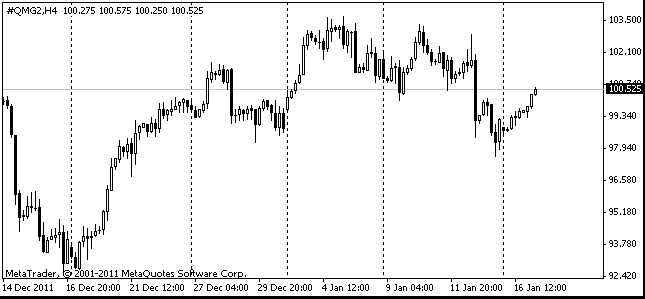EUR/usd
Markets cannot remain in sell mode all the time. At one time or another the ticker will swing the other way. Perhaps, we will see one of these moments in the near future. The euro has found the support just above 1.26. This happened despite the S&P's logical decision to downgrade the rating of the European rescue fund (EFSF) after lowering France's rating. The good news here is that the lending capacity of the fund hasn't been affected. It still can lend up to 440 billion euro to the troubled European nations. That piece of news provided a short-term support to the besieged single currency. But at the same time it should be kept in mind that impaired ratings once again make the European leaders' agenda tenser. They will gather again to discuss the possible ways out of the debt crisis. Mario draghi is still taking an active stand, calling on politicians to act more actively to resolve the euro crisis which has already led to «a very grave state of affairs” in the region. The ECB's head at the same time urges to focus on growth and austerity measures. A few months earlier Trichet also laid out this idea before the European Parliament. He noted that the crisis had hit “systemic dimensions.” At that time the markets already understood it, but many politicians didn't. Now it seems that the latter have finally realized the graveness of affairs, but at present they have to deal with a greater deterioration. From the short-term perspective we may say that in anticipation of summits the markets are generally full of hope and buy risky assets, then within a week they get disappointed in the results and go even lower than they were before, as a rule. So, it may be the case this time, however this trading week the single currency is more likely to grow against the dollar. Can it be a good opportunity to sell the euro on highs?

GBP/USD
Today is going to be a hard day for the British pound. Markets will see data on the country's consumer price inflation, and soon after the BOE head, M. King, will deliver a speech. The inflation is expected to display a further slowdown to 4.2% against 4.8%. However, in monthly terms prices are expected to show an increase of 0.4%. Nevertheless, in our opinion, there are high chances for prices to appear lower than expected. 15 minutes after the CPI release M. King as head of the committee on financial stability will make a speech. During the crisis he more than once has been very skillful at painting the situation with the sterling in black colours and each time the currency really lost one or two big figures on his words. Later during the gradual economic recovery his words were deprived of their magical effect. However, after a year of nearly stagnation the country is going under a full head of steam towards a downturn, and King could always call a spade a spade. If you do not want to risk now, stay away from the old lady.

USD/JPY
The dollar index rose to 81.80 last week. It is the 18-month high, which has made the index too heavy. As has been mentioned above about the euro, a very long movement in one direction cannot last forever. This kind of correction with dollar sales exerts its influence on the USD/JPY as well. It fell down to the 76.70 area yesterday, which is actually the lower boundary of the trading range, prevailing these days, as well as the level around which the trade was carried out from August to October 2011. In general, strengthening of stock markets often supports the currency rate, but the short-term dollar sales can bring the pair lower. We believe, it is a good opportunity to buy the pair at bargain prices.

oil
Oil prices have been rising gradually for two days. The cost of a WTI barrel rose to $ 100, which is about two dollars above the minimum Friday's levels. brent is suffering even a greater price growth on bad news from Europe. Iran has once again threatened to close the Strait of Hormuz and urged its neighboring countries not to raise their oil production levels to make up for the deficiency. Up to 17 million barrels a day are transferred across the Strait. The oil minister of Saudi Arabia has assured that the production level can be easily increased by 2 million barrels a day. But he has also mentioned the country's target price of $100 per barrel for this year. It is this very level at which Saudi Arabia wants to see the price stabilization. Needless to say that it is rather high for the weak European economy and for the sharply slowing Asian one. In its turn Britain declared that it may consider various tax incentives for its companies producing oil on the northern shelf so that they can be less dependent on the supplies from the Arabian countries. France is getting even angrier and tries to speed up the imposition of EU embargo on Iran.
